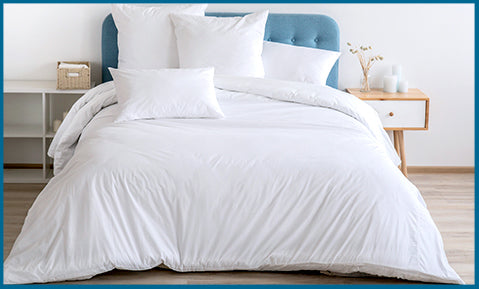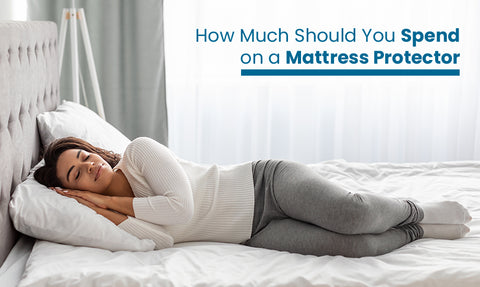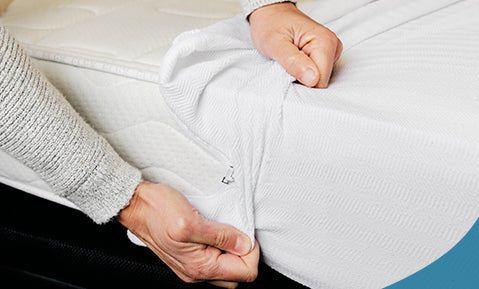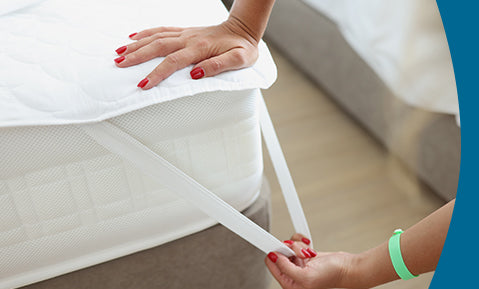
During the day, while at work, school, library, or university, you may feel lethargic and drowsy. And even after getting the required 8 hours of sleep, these symptoms may not go away. Excessive sleepiness can be a symptom of a serious medical condition.
Let’s learn more about medical conditions that cause excessive sleepiness.
Excessive daytime sleepiness (EDS) - explained!
While sleep deprivation and sleep disorders, such as insomnia and sleep apnea, are the leading causes of sleepiness, it may also be a symptom of other medical conditions.
Distinct from fatigue, excessive daytime sleepiness impairs alert and awakeness. It is also referred to as hypersomnia.
Here are the two types of hypersomnia:
- Primary hypersomnia: caused by conditions that affect the central nervous system, conditions that include narcolepsy, Kleine-Levin syndrome, and idiopathic hypersomnia.
- Secondary hypersomnia: caused by another medical condition or by medication.
Drowsiness interferes with your work and decreases your productivity. Without an ability to focus clearly, you can’t perform well, so drowsiness also impairs your quality of life.
Medical conditions that cause excessive daytime sleepiness
Instead of being a condition itself, excessive daytime sleepiness can be a symptom of another underlying medical condition, which is generally not serious.
Let’s look at medical conditions that can cause sleep deprivation like symptoms.
Sleep disorders that cause EDS
Here are a few sleep disorders that cause excessive daytime sleepiness:
Insomnia
Affecting millions of people worldwide and generally resulting from stress, anxiety, and depression, insomnia impairs your ability to fall or stay asleep.
According to research, 25 percent of people suffer from insomnia in the United States yet 75 percent of these people don’t develop long-term insomnia.
Insomnia can lead to the following health issues:
- Excessive daytime sleepiness
- Irritability, anxiety, and frequent mood change
- Heightened emotions
- Nausea
It can even lead to development of chronic conditions, such as:
- Depression
- Diabetes
- Obesity
- Cardiovascular disease
Mostly caused by short-term stress and anxiety, insomnia may be a result:
- Jet lag
- Absence of regular exercise
- Use of drugs such as ecstasy or cocaine
- Depression
- Anxiety
- Schizophrenia
- Bipolar disorder
- Overactive thyroid
- Sleep apnea
- GERD (gastrointestinal reflux disease)
- Chronic pain
If relaxation techniques don’t help you fall asleep, then talk to a sleep specialist.
Sleep Apnea
Sleep apnea can be of two types:
- Obstructive sleep apnea (OSA)
- Central sleep apnea (CSA)
While OSA results from blockage in the upper airway, CSA results from failure of the brain to send breathing signals to muscles. OSA is substantially more common than CSA.
Symptoms of obstructive sleep apnea include:
- Loud snoring
- Gasping and choking
- Paused breathing
- Noisy breath
Sleep apnea can result in:
- Excessive daytime sleepiness
- Insomnia or restless sleep
- Dry mouth and sore throat
- Heartburn
- Headaches
- Irritability
You should consult a doctor as soon as possible if you think you’ve sleep apnea, as it’s a serious medical condition that, if left untreated, may lead to:
- Heart attack
- Stroke
- Depression
- High blood pressure
You can find many machines that provide relief from obstructive sleep apnea. The most commonly used machine for OSA, CPAP (continuous positive airway pressure) delivers constant airflow to keep your windpipe open.
Restless leg syndrome (RLS)
Because of twitching and discomfort in the legs, people suffering from RLS often need to move their legs to relieve the symptoms.
Affecting 1 in 10 people at some point in their life, RLS often resolves on its own because of time or lifestyle changes.
RLS can also be a result of an imbalance in neurotransmitters, such as dopamine and serotonin, in the brain. Because of this, the treatment may include antidepressant medications.
Here are a few medications that are popularly used for RLS:
- Iron supplements: RLS may be a symptom of low iron levels.
- Gabapentin: mostly given off-label, this medication is often prescribed by doctors for RLS.
- Benzodiazepines: these are a class of medication that affect the hormones and neurotransmitters in the brain.
- Dopamine agents: these increase the dopamine levels in the brain and relieve symptoms of RLS.
If you suffer from RLS, then don’t take melatonin, as it decreases the amount of dopamine in your brain, further exacerbating your symptoms.
Circadian rhythm disorder
Characterized by an inability to maintain a sleep schedule, non 24-hour sleep-wake disorder alters the circadian rhythm and prevents it from resetting every 24 hours.
Because of a general delay of 2-3 hours in resetting of circadian rhythm, people with this sleep disorder find it difficult to maintain a proper sleep schedule.
Melatonin can help reset the circadian rhythm and help people suffering from this condition.
Nocturia (frequent nighttime urination)
If you’re waking up regularly to urinate at night, you won’t get proper sleep, resulting in excessive daytime sleepiness.
Once the underlying condition is known, nocturia can be treated easily. So reach out to a certified medical professional as soon as possible.
And if you want to improve your sleep, then avoid diuretics, such as alcohol and caffeine, which exacerbate the symptoms of nocturia.
Chronic pain syndrome
A normal reaction to injury or illness, pain helps your body to heal and then goes away.
But in some cases, it continues even after the underlying condition is no longer there. Any pain that lasts for more than 3 months can be characterized as chronic.
Common causes of chronic pain include:
- Arthritis
- Headaches
- Fibromyalgia
- Nerve damage from conditions such as diabetes
- Lyme disease
- Cancer
- Irritable bowel syndrome
It may also occur after an intrusive surgery.
Because of consistent pain, patients usually present with symptoms including:
- Anxiety and depression
- Irritability
- Suicidal thoughts
- Loss of productivity
While chronic pain may never go away, there are medications available that can significantly ameliorate the symptoms.
Mental health disorders
Mental health disorders can alter the hormone and neurotransmitter levels in our body. Because of this, many people suffering from mental health disorders complain of excessive daytime sleepiness.
Here are the mental health disorders known to cause excessive daytime sleepiness:
- Depression
- General anxiety disorder
- Post-traumatic stress disorder (PTSD)
- Complex post-traumatic stress disorder (c-PTSD)
- Bipolar Disorder
Neurodevelopmental disorders
Because of aberrant CNS development and behavior, some people with neurodevelopmental disorder experience excessive drowsiness during the daytime.
Affecting millions of children and adults worldwide, attention deficit hyperactivity disorder leads to a host of sleeping problems.
Children with ASD (Autism Spectrum Disorder) often experience sleep disturbances. In fact, 31 percent of them experience excessive daytime sleepiness.
Neurodegenerative Disorders
Neurodegenerative disorders, such as parkinson's disease and dementia, may cause daytime drowsiness and insomnia-like symptoms.
Other conditions, such as meningitis and encephalitis, which cause damage to the brain, can lead to EDS.
Note: Certain medications can also cause excessive daytime sleepiness. Consult your doctor about your symptoms.

Relieving symptoms of excessive daytime sleepiness
While dealing with the underlying condition is important, you can make several lifestyle changes that promote good quality sleep and decrease daytime sleepiness.
Here are lifestyle changes that you can decrease daytime sleepiness:
Exercise
Exercising for 30 minutes a day can provide a host of health benefits. You can select from several difficult exercise types including:
- Running
- Swimming
- Weightlifting
- Bodybuilding
Or you can simply take up a sport to work out your body.
Sleep environment
An ideal sleep environment should help you fall and stay asleep. Creating a healthy sleep environment includes the following:
- Supportive pillow: a pillow with the perfect loft and firmness will help you maintain proper alignment of the spine.
- Ideal mattress: select a mattress that is supportive but not rigid.
- Earplugs and earphones: drown out the noise from the environment to enjoy uninterrupted sleep.
- Scents: use essential oils to enhance the smell in your bedroom.
Meditation
Meditation helps to reduce stress and anxiety. After a long day of work, you should unwind and use relaxation techniques to calm your mind.
Mindfulness meditation requires you to simply focus on your breath. Your mind will conjure new thoughts that are distractions.
You need to simply note the thought and ,without judging it, bring your focus back to your breath.
Conclusion
Sleep is essential to rejuvenate your physical and cognitive abilities. But if the quality of sleep isn’t good, then you’ll feel drowsy and unfocused. If, despite maintaining good sleep hygiene and a regular sleep schedule, you find it difficult to fall asleep at night or stay awake during the day, then you should consult your doctor.












